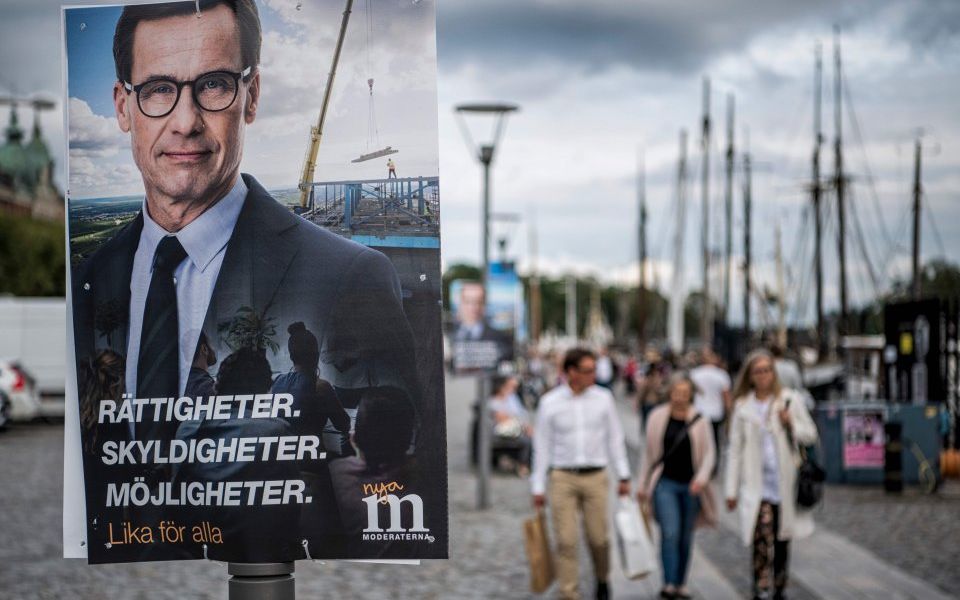Immigration has been at the heart of Sweden’s tech triumph

Last Sunday, Swedes headed to the polls.
The eyes of the world were on us, with the election result a potential barometer of other populist movements across Europe and further afield.
The Sweden Democrats, an emergent nationalist party, grabbed the global headlines with their focus on immigration and contempt for the EU. Other parties, competing for airtime with such an extreme but precise message, reverted to traditional talking points such as policing, waiting times at hospitals, and the military.
Read more: The EU’s existential crisis has spread to Sweden
For me, this was deeply frustrating and un-Swedish. Walking through the capital, I passed endless campaign posters espousing the same tired old lines. The country was crying out for a leader with a long-term vision, but instead all we got were short-term nurses administering bandaids for recent populist wounds.
No politician laid out a plan, or even showed an appreciation of how quickly modern Sweden is changing. As the chief executive of a technology company based in Stockholm, I can see first-hand how rapidly innovation is impacting our country and citizens.
And yet, in this election cycle, these topics barely featured.
There was no mention of automation’s dramatic effect on our economy, traditional jobs, and infrastructure – how the next time you cross Malmo’s famous bridge to mainland Europe, the car next to you might not have anyone in the driving seat.
Politicians showed little concern for how medical advancements will soon see our ageing population increasing drastically, nor what the implications of this might be.
And no one discussed the dawn of super-intelligence, and the fact that we should be preparing for artificial intelligence to revolutionise every aspect of private and corporate life.
These issues are incredibly important, and they are pressing. The fact that politicians practically ignored them is both a threat to our future and an insult to our heritage.
For Sweden, the last few decades have been defined by getting ahead of the technological curve.
We are the country that created Spotify and Skype. Stockholm has more tech unicorns per capita than every other city outside Silicon Valley. In the capital, where my company is headquartered, the most common profession for people is “programmer”. Our startup ecosystem is one of the most successful in the world, and yet politicians seem to take that for granted.
Immigration is central to these achievements.
Some might believe that these tech successes were all achieved by garlanded Vikings dancing around maypoles and drinking schnapps. But in reality, Sweden’s diversity is the bedrock of its tech success. Our magnetic ability to attract brilliant people has paved the way for generations of entrepreneurs.
Until now, our high quality of life (generous parental leave, flat hierarchies, and the supportive welfare system) has attracted some of the best talent the world has to offer.
Technology hubs like Stockholm, Gothenburg, and Malmo are young, diverse, and full of ideas. My own company Fishbrain – a social media network for anglers with seven million users globally – employs people from 17 different countries.
For app-builders like us, our audience is from all over the world, so of course we need a workforce to match that.
The rise of anti-immigration sentiment is an existential threat. Our recent election cycle has damaged the perception of Sweden as a warm, inviting, and egalitarian nation.
In this time of increased globalisation, accentuated by the political upheaval across Europe, young, skilled people are increasingly crossing borders – and the more visionary leaders are looking to capitalise.
We Vikings once made our name leaping from longboats onto beaches from North America to the Middle East. Now we live by encouraging others to come to our own shores, and continue to build the Scandinavian dream. We need politicians who want to pursue that – not ones who would have us take up the battleaxes again.
Read more: Decision on international students is a missed opportunity for reform